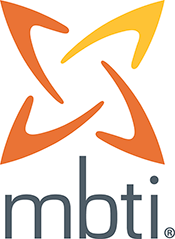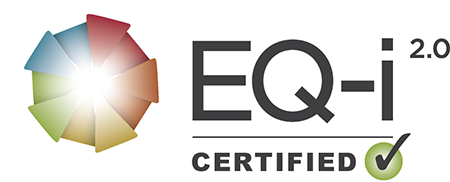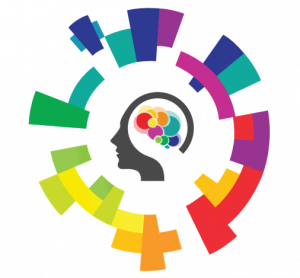Myers Briggs Type Indicator® (MBTI® or TYPE)
Practitioner (Step I & II):
Over the past 70 years, the Myers-Briggs Type Indicator® (MBTI®) instrument has helped millions of individuals throughout the world gain awareness about themselves and how they interact with others. The MBTI® instrument enables personal transformation by giving people a powerful tool for improving how they communicate, learn and work.
In developing the MBTI® instrument, Isabel Briggs Myers and her mother, Katharine Briggs, aimed to make Carl Jung’s theory of psychological type understandable and useful in people’s everyday lives.
The essence of the theory is that much seemingly random variation in behaviour is actually quite orderly and consistent, owing to basic differences in the ways individuals are oriented toward the external world, take in information and draw conclusions about what they perceive.
Emotional Intelligence – EQ-i2.0
Emotional intelligence is a set of emotional and social skills that influence the way we perceive and express ourselves, develop and maintain social relationships, cope with challenges, and use emotional information in an effective and meaningful way. The EQ-i2.0 come in a number of formats. the Momentum Program utilises the Leadership Report or the 360. While emotional intelligence is not the sole predictor of human performance and development potential, it is proven to be a key indicator in these areas. Emotional intelligence is also not a static factor — on the contrary, one’s emotional intelligence can change over time and can be developed in targeted areas.
Emotionally Intelligent Leader
The Emotionally Effective Leader is a one-day or two half-day program designed for those who want to increase their leadership capability. We will leverage the results from the EQ-i2.0 Leadership Report to enable participants to learn more about the importance of emotional intelligence and its relationship to effective leadership. Participants will leave with a better understanding of their EQ strengths, areas to develop and enhance their leadership skills, as well as an action plan on how to increase their effectiveness.
In addition, we will review your data through the lenses of Authenticity, Insight, Innovation and Coaching.
Benchmarks®:
Benchmarks® is designed for experienced managers and executives and is a comprehensive 360-degree assessment tool that measures 16 competencies critical for success: Leading the Organisation, Leading Others and Leading Yourself. As well, it identifies five possible career Derailment Factors.
SKILLSCOPE®:
SKILLSCOPE® is designed for new leaders and managers and is based on what managers’ job roles entail and the skills they require to be effective within those roles. It identifies 5 clusters of skills that are proven to be critical to effectiveness in the workplace: Information Skills, Decision Making, Interpersonal Skills, Personal Resources and Effective Use of Self.
Trained Coach for The Leadership Challenge (TLC)
There are five practices of Exemplary Leadership: – Model the Way, Inspire a Shared Vision, Challenge the Process, Enable Others to Act and Encourage the Heart. Each of the Five practices has two underpinning tenets.
TLC has seven fundamental principles:- leadership development is, self-development, everyone’s business, is a relationship and the best leaders are the best learners, they understand it takes practice, deliberate practice, to become a better leader, leadership is an aspiration and a choice and leaders believe that they make a difference.






